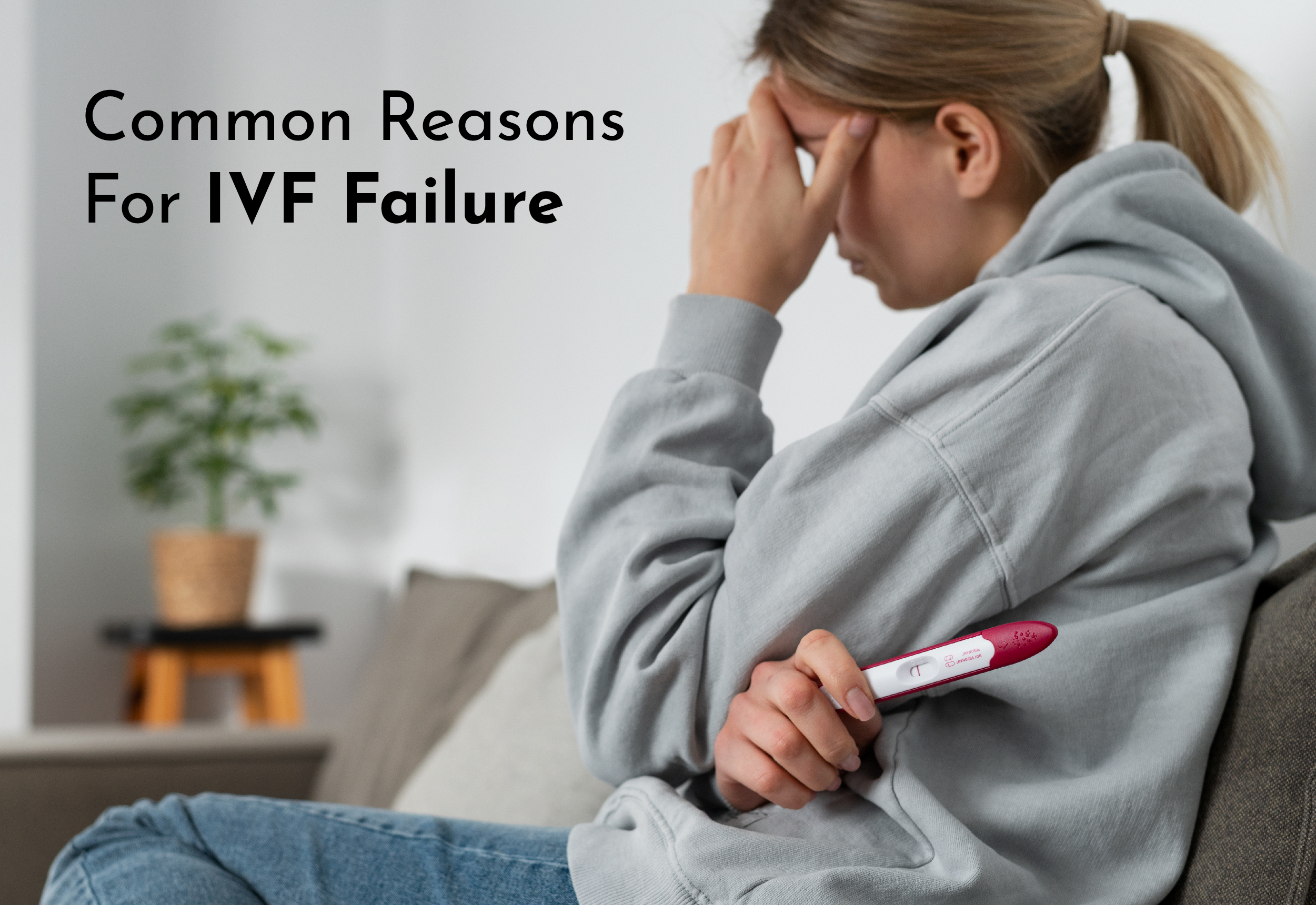Table of Contents
Common Reasons for IVF Failure
In Vitro Fertilization (IVF) has provided hope for many couples facing infertility. Despite the advanced technology and expertise involved, IVF is not always successful. For many, experiencing an IVF failure can be devastating.Let’s understand the reasons for these failures, knowing how to cope, and exploring subsequent steps can help couples navigate this challenging journey.
Must Read: Female Infertility Treatment in India
What Constitutes an IVF Failure?
IVF failure occurs when the embryo transfer does not result in a pregnancy. This can happen at various stages: the embryo may not implant in the uterus. Sometimes the pregnancy may not progress, or there might be a miscarriage.Achieving a successful pregnancy might necessitate multiple cycles.It’s important to recognize that each cycle offers new insights and opportunities.
Common Causes of IVF Failure
- Embryo Quality: Poor embryo quality is one of the most common reasons for IVF failure.Embryos may have genetic abnormalities that prevent successful implantation or development.
- Implantation Issues: Even with high-quality embryos, implantation in the uterus can fail. This can be due to problems with the uterine lining or other undetected issues within the uterus.
- Age Factors: Age plays a significant role in IVF success rates. Women over the age of 35 may have a lower quantity and quality of eggs, which can affect the outcome.
- Sperm Quality: Male factor infertility, such as low sperm count or poor sperm motility, can also contribute to IVF failures. Sometimes, sperm may have genetic issues that impede fertilization or embryo development.
- Lifestyle Factors: Health and lifestyle choices, such as smoking, excessive alcohol consumption, poor diet, and high stress levels. All these conditions can negatively impact IVF outcomes.
- Medical Conditions: Conditions like polycystic ovary syndrome (PCOS), endometriosis, or uterine fibroids can interfere with IVF success. Additionally, autoimmune disorders can also play a role.
- Laboratory Conditions: The laboratory environment and techniques used, can impact the success rate. This includes factors like culture media and the skill of the embryologist.
Coping with IVF Failure
Experiencing an IVF failure can be emotionally and physically draining. Here are some strategies to help cope with the disappointment:
- Allow Yourself to Grieve: It’s natural to feel a sense of loss and grief. Allow yourself to process these emotions and seek support from your partner, family, or friends.
- Seek Professional Help: Consider talking to a counselor or therapist who specializes in fertility issues. They can provide coping strategies and emotional support.
- Join Support Groups: Connecting with others facing similar challenges can offer comfort.Support groups, both online and in-person, offer a sense of community and understanding.
- Focus on Self-Care: Make your physical and emotional well-being a priority. Engage in activities that you enjoy and that help reduce stress, such as exercise, meditation, or hobbies.
Exploring Next Steps
After an IVF failure, it’s important to review the cycle with your fertility specialist to understand what might have gone wrong and to discuss next steps. Some potential options include:
- Repeat IVF Cycle: Often, repeating the IVF process with adjustments can lead to success. Your doctor may suggest changes based on the insights gained from the previous cycle.
- Preimplantation Genetic Testing (PGT): This involves screening embryos for genetic abnormalities before transfer. It can improve success rates by ensuring only healthy embryos are used.
- Donor Eggs or Sperm: If egg or sperm quality is a significant issue, using donor eggs or sperm can increase the chances of a successful pregnancy.
- Alternative Treatments: Exploring other fertility treatments or approaches, such as intrauterine insemination (IUI) or surrogacy. This might be recommended based on individual circumstances.
- Lifestyle Changes: Making positive lifestyle changes, such as improving diet, reducing stress, and avoiding harmful substances. All these changes can also improve future IVF outcomes.
Conclusion
IVF failures can be heart-wrenching, but they don’t signify the end of your fertility journey. Understanding the potential causes, coping effectively, and exploring all available options with your fertility specialist. It can guide you towards success in subsequent attempts. Each cycle offers valuable insights. With persistence, many couples eventually achieve their dream of parenthood.

